Haiti 2010
After the devastating earthquake that left Haiti in literal shambles, Dr. Williams volunteered to travel there to help with the relief effort and clean up. Within days of the earthquake, he had connected with a team traveling from Ft. Worth, Texas. With help of corporate sponsors, the team traveled to Haiti where they based their efforts at Unite D’Hospitalisation in Payen, Haiti. During his time, he operated on 18 victims of the earthquake to help save limbs and lives. He recounts that casualty tolls were so high that the Haitians were burning bodies in the streets to prevent infection.
While there, Dr. Williams met a missionary, Ann Hume, who is the director of the God’s Children Haiti. A Michigan resident half the year, Ann travels to Haiti every 6 months to maintain her orphanage for disenfranchised children of the region.
One child that Dr. Williams helped was Djovany Momperousse, then aged 5 years old. He was buried in the earthquake rubble for 4 days and his aunt’s body was crushed upon Djovany’s left arm. His head was pinned between two cinder blocks the entire time and he developed wounds to his scalp due to this. His arm had to be amputated and the wounds to his scalp had to be treated. Perhaps far worse than the physical injuries was the emotional and psychological injuries that Djovany sustained. He suffered night terrors every night for months. Even with kids his age, he didn’t know how to play for a long time. Djovany was left orphaned as a result of the earthquake and Ann took him in as part of the family at the orphanage.
Electricity is a luxury in Haiti even in good times, but after the earthquake it was even more of a premium. During the day, the generator would be started to supply the operating room with power. Dr. Williams had to be resourceful for night operations. For example, he created a negative pressure wound (NPW) dressing to help heal an open fracture to the tibia to prepare it for skin grafting. During the day, while the generator was running, he would hook his engineered NPW dressing to the electrical outlet. Meanwhile he charged two 12-volt car batteries off the power. At night, while the generator was off, he would then hook the batteries together in series and with the aid of an electricity converter, he would power the suction device at night. His efforts were successful and after 5 days, he was able to skin graft the open wound to save the patient’s leg.
Dr. Williams recounts, “medical missionary work is tough, involves working during all waking hours, and certainly is not a vacation. Even missionaries can be physically scarred from their trips.” During his 10 days in country, he was infected with the mosquito-born Dengue fever. Fortunately, he recovered fully after he returned from Haiti.
